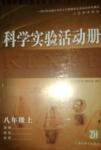题目内容
A huge amount of oil was spilt on the East Sea,the causes of ________ are still under investigation.
A.itB.thatC.whichD.whom
练习册系列答案
 科学实验活动册系列答案
科学实验活动册系列答案
相关题目
题目内容
A huge amount of oil was spilt on the East Sea,the causes of ________ are still under investigation.
A.itB.thatC.whichD.whom
 科学实验活动册系列答案
科学实验活动册系列答案